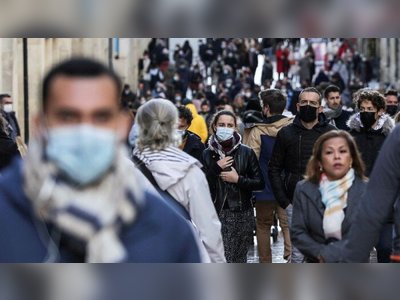
State of Public Hospitals in France Raises Concerns Five Years After COVID-19
French public health institutions face financial strain as emergency services shutter amid rising operational costs.
As of March 2025, public hospitals in France continue to grapple with significant challenges, five years after the onset of the COVID-19 pandemic.
The healthcare system is witnessing a marked deterioration, with one in five health facilities reporting the intermittent closure of their emergency services at least once in 2024. This trend has raised concerns among the French populace regarding access to adequate medical care.
The financial plight of public hospitals is expected to deepen, with a forthcoming increase in employer contributions to the national pension fund for local authority employees.
An increase of twelve percentage points is mandated by 2028, implemented in increments of three percentage points per year.
This financial burden is anticipated to exacerbate the already precarious fiscal health of these institutions.
The COVID-19 crisis revealed profound vulnerabilities within the public health system, exposing operational fragilities and serious shortcomings in healthcare financing.
In March 2020, hospitals faced an unprecedented influx of patients, which forced them to adapt swiftly through patient evacuations, temporary rule modifications, and exceptional mobilization of healthcare teams.
Despite these adaptations, the lasting impact of the pandemic has left many institutions struggling to maintain essential services, prompting widespread anxiety among the populace regarding the quality and availability of health care.
The situation remains a critical concern for public health policymakers, as the long-term sustainability of health services in France is increasingly jeopardized.
The healthcare system is witnessing a marked deterioration, with one in five health facilities reporting the intermittent closure of their emergency services at least once in 2024. This trend has raised concerns among the French populace regarding access to adequate medical care.
The financial plight of public hospitals is expected to deepen, with a forthcoming increase in employer contributions to the national pension fund for local authority employees.
An increase of twelve percentage points is mandated by 2028, implemented in increments of three percentage points per year.
This financial burden is anticipated to exacerbate the already precarious fiscal health of these institutions.
The COVID-19 crisis revealed profound vulnerabilities within the public health system, exposing operational fragilities and serious shortcomings in healthcare financing.
In March 2020, hospitals faced an unprecedented influx of patients, which forced them to adapt swiftly through patient evacuations, temporary rule modifications, and exceptional mobilization of healthcare teams.
Despite these adaptations, the lasting impact of the pandemic has left many institutions struggling to maintain essential services, prompting widespread anxiety among the populace regarding the quality and availability of health care.
The situation remains a critical concern for public health policymakers, as the long-term sustainability of health services in France is increasingly jeopardized.











